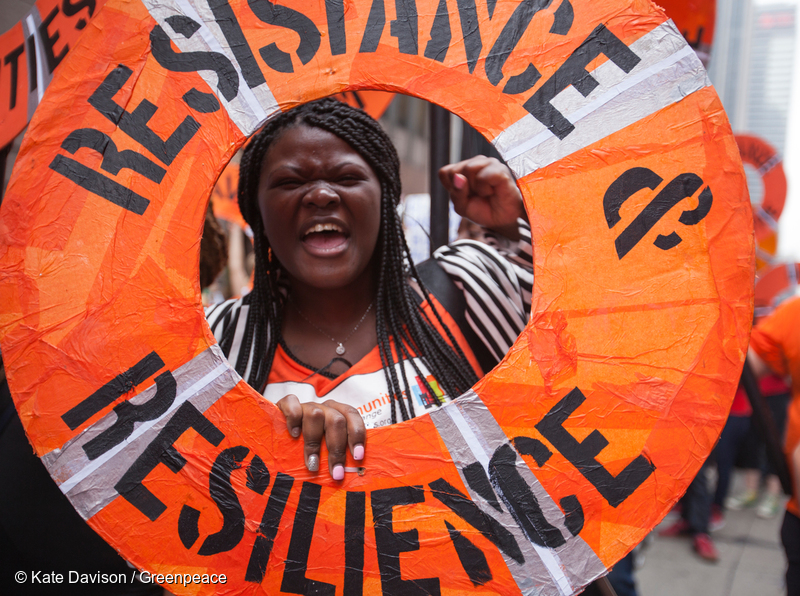The flawed, dangerous idea of population control redirects the blame for societal problems to those with the least power to address them.
by Dakota Schee and Varsha Nair
You may have heard people say, “we wouldn’t be in a climate crisis if we had fewer people on Earth.” The overpopulation narrative is an outdated frame that was popularized in the 1960s. It serves to redirect the blame for societal problems to those with the least power to address them. The justification goes like this: “our global population is increasing to a point that the environment simply cannot support, and overpopulation is the main cause of resource depletion and climate chaos, therefore we need solutions like ‘population control’—reducing the number of people to curb climate change.”
While 100 companies are responsible for 70% of global CO2 emissions, ‘population control’ keeps us focusing on individual action instead of larger, system-wide change. Instead of identifying the role of climate villains and the governments that enable environmental and climate destruction, this argument takes us in a dangerous direction. Over time, environmental groups have fed this flawed, dangerous reasoning.
The ‘population control’ concept has racist origins
The Population Bomb, a book which first popularized this idea, was based on the author Paul Ehrlich’s experience in a crowded city in India. It advocates for incentives and coercion to control the population—specifically targeted at non-white people. Even today when people talk about overpopulation, they are often talking about China, India, and other primarily non-white countries in the Global South. In the US, ‘population control’ has come in the form of forced sterilization of Black and Brown mothers. It has been used to justify ecofascist attacks, like the El Paso mass shooting, where the white supremacist shooter cited anti-immigration rhetoric based in the overpopulation myth to justify targeting and killing immigrants in order to compensate for the environmental costs of white American lifestyles.
Like any racist narrative, ‘population control’ has real-life consequences.
In reality, people from the Global South have much lower emissions per capita, so reducing our population would not solve the climate crisis. According to a study from Oxfam in 2015, “someone in the richest 10 percent of citizens in India uses on average just one quarter of the carbon of someone in the poorest half of the population of the United States.” Most population control arguments focus on developing countries with negligible environmental impacts, rather than affluent white countries—which upholds white supremacy.
The best way to address the climate crisis is through pressuring the companies who are the root cause, and through sustainable, renewable, just and equitable distribution—not by reducing the number of people on Earth.

A participant in the People’s Climate March shows off her message as she makes her way through the streets of New York City. The march, two days before the United Nations Climate Summit, is billed as the largest climate march in history.
We must confront the 1% of billionaire CEOs and shareholders of companies who are hoarding resources, and create a system that provides for everyone on the planet sustainably.
‘Population control’ causes real harm, upholds white supremacy, and suppresses the real issues causing the climate crisis. We must be critical of harmful narratives that undermine justice and human rights under the guise of environmentalism.
We must also acknowledge our complicity in promoting and benefiting from them.
Greenpeace is fighting for a world where the planet AND people can thrive. This means we all have a responsibility to challenge the idea of population control as a solution to climate change every time and in every space that it comes up, and refocus our energy on real solutions to overconsumption by the wealthiest people and corporations in the world.
